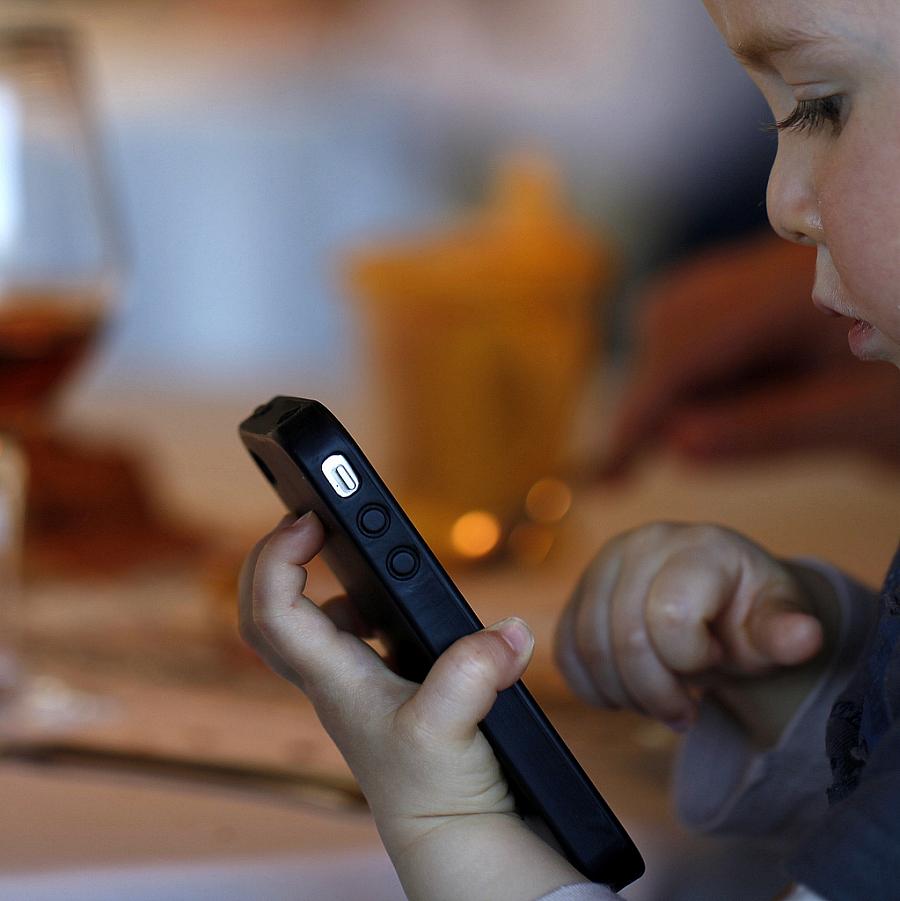Small screens tied to tired children, health concerns

In a story last September, New York Times tech reporter Nick Bilton recalled a 2010 conversation with Steve Jobs in which the tech giant revealed his kids hadn’t used an iPad. “We limit how much technology our kids use at home,” Jobs told Bilton.
Chris Anderson, the former editor of Wired, likewise told Bilton, “This is rule No. 1: There are no screens in the bedroom. Period. Ever.”
Those are the kinds of delectable ironies any journalist would be happy to gather. But it turns out that Jobs, Anderson and like-minded parents were on to something — small screens aren’t always a healthy presence for kids, especially in the bedroom.
The latest evidence of their potential downside came in a new study published Monday in the journal Pediatrics. Researchers found that children who slept near a smartphone or similar small screen device slept about 20 minutes less per night on average on weekdays than those who didn’t. They also went to bed about 37 minutes later. Kids sleeping with small screens nearby were also more likely to report feeling tired and not getting enough sleep.
And, as established by earlier research, TVs aren’t sleep-promoting either: Children who had a TV in their sleeping quarters averaged 18 minutes less sleep a night than those with no TV, and went to bed about a half hour later.
The new figures are based on surveys from 2,048 fourth- and seventh-graders attending public schools in two Massachusetts cities. More than half slept with a small-screen device nearby. “These findings caution against unrestricted screen access in children’s bedrooms,” the study concludes.
A rising tide of fatigued kids poses potential problems that go beyond staying focused in the classroom. As the Pediatrics study notes, “Inadequate sleep has been identified as a risk factor for obesity” as well as a host of other health problems:
Improving sleep duration and quality may improve somatic and psychosocial health, school performance, and risk-taking behaviors among youth and reduce hypertension, coronary heart disease, and stroke in adulthood. Sleep may also play a critical role in immunity.
The American Academy of Pediatrics revised its guidelines on “new media” (they mean smartphones and iPads, not Buzzfeed) in 2013. Among their advice to parents: “Keep the TV set and Internet-connected electronic devices out of the child’s bedroom.”
That’s the approach NPR’s Nancy Shute has adopted for her own child, as she revealed in her recent coverage of the new research:
[T]hough I don't think my sixth grader is texting at midnight, I've been worried enough about the disruptive potential of the bedside device that this Christmas she got an old- school bit of technology — a clock radio. That iPod is outta there.
Those kinds of parental fiats can turn into uphill struggles, however, especially as children get older and craftier. It would seem far more parents are taking a laissez-faire approach. According to the AAP guidelines, “Few parents have rules about cell phone use for their children or adolescents. More than 60 percent of teenagers send and/or receive text messages after ‘lights out,’ and they report increased levels of tiredness, including at school.”
It might be tempting to conclude that sleep disruption is just one more way in which new tech will “mush my toddler’s brain.” But while smartphones and iPads may be the latest threat to well-rested kids, their sleep durations have been slowly dwindling for at least a century, according to a 2012 study. “Over the last 103 years, there have been consistent rapid declines in the sleep duration of children and adolescents,” the Australian researchers note.
If that’s the case, the real threat to a good night’s rest may not be so much smartphones as modernity itself. And that’s harder to toss out of the bedroom.
Photo by jenny downing via Flickr.

